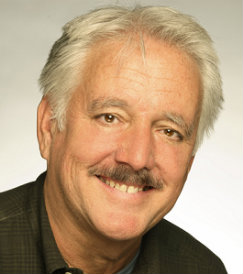Steve Chandler has been in the business of helping others with their own personal development for over twenty years. He’s a public speaker, business consultant, and master life coach. He’s also a prolific writer, having written more than thirty books that have been translated into 25 different languages.
 I was originally introduced to Steve’s work though my life coach, Carolyn Freyer-Jones. She gave me one of his books, Ten Commitments to Your Success, and his writing style quickly became one of my favorites for self-help books. Short chapters (often less than three pages) with bite-sized concepts that are easily digestible, totally relevant, and full of wisdom and truths. I’ve gone on to read at least five more of his books (most recently Time Warrior) and I have another on my shelf to read, Wealth Warrior. In his newest book, Crazy Good, he discusses those over-the-top athletic or musical performances that are so out of the ordinary and so “crazy good” they leave you speechless.
I was originally introduced to Steve’s work though my life coach, Carolyn Freyer-Jones. She gave me one of his books, Ten Commitments to Your Success, and his writing style quickly became one of my favorites for self-help books. Short chapters (often less than three pages) with bite-sized concepts that are easily digestible, totally relevant, and full of wisdom and truths. I’ve gone on to read at least five more of his books (most recently Time Warrior) and I have another on my shelf to read, Wealth Warrior. In his newest book, Crazy Good, he discusses those over-the-top athletic or musical performances that are so out of the ordinary and so “crazy good” they leave you speechless.
I met Steve in person at the Soul Centered Professional Coaching Program at the University of Santa Monica. He was a recurring guest instructor and was incredibly insightful and helpful in his presentations about being in the business of serving other people. It was during one of his classes that I realized he was someone I wanted to talk more in depth with about the development of the habits we tackle during the Whole Life Challenge. And, of course, I recorded it all to share it with you.
My conversation with Steve started with a question I frequently ask myself, and one I hear often from WLC participants. There seem to be two different sides of the coin when it comes to developing new behaviors in our lives:
- One side is the “drill-sergeant.” The one who is a disciplinarian, holds you accountable and responsible, and makes sure you are painfully aware of your transgressions and mistakes – all in an effort, mind you, to help you stick to these new habits, rules, and behaviors. In other words, the drill sergeant’s intention is good and pure, in spite of the hard-assed methods.
- The other side is the “loving mother.” The one in whose eyes you can do no wrong. Who loves you unconditionally. Who forgives you for any transgression, and who lets you off the hook for anything, chalking it up to knowing you’re always “doing your best.”
We all have these two sides (though we may be more strongly in touch with one), and both can be useful in your growth and development journey. So my question to Steve was this: “How do you balance this grit (drill sergeant) with grace (loving mother)? Who do you listen to more strongly? Which side is more effective and useful?”
Listen for his answer. It’s a conversation you won’t want to miss.
3:00 – When working on developing new habits, how do you balance grace (non-judgement, acceptance) with grit (determination, accountability)?
3:55 – Criticism vs. positivity – which is more effective?
5:00 – Self-criticism – normal for all of us, but it doesn’t work.
7:01 – The habit of self-criticism – where does it come from?
9:55 – The fear of letting ourselves off the hook and how to deal with it.
11:15 – “That’s a pattern of mine” is a lack of responsibility. You are not your pattern.
13:30 – The practice of practice. It’s like learning a new language.
14:30 – The fear of being too accepting, patient, kind, and loving to yourself. We fear if we are this way, we somehow won’t learn as well as if we are self judging and critical.
17:08 – How self-consciousness – “What are they thinking of me?” – creates doubt, fear, and the inability to connect with others.
21:51 – The difference between “I’m going to do push-ups” and “There are twenty push-ups to do.” The power of leaving out the “I” or “me.”
23:17 – How to win at darts (by making someone self-conscious).
26:44 – Process goals vs. outcome goals and making it fun.
29:17 – Taking action (hint: you don’t need more information first).
30:45 – Playing the WLC to win vs. playing to learn the most.
32:41 – Gamifying your life and business – having fun!
34:15 – Game vs. shame.
34:55 – How “you” get in the way of your best performance.
36:50 – Getting back to your three-year-old state to get in your zone.








